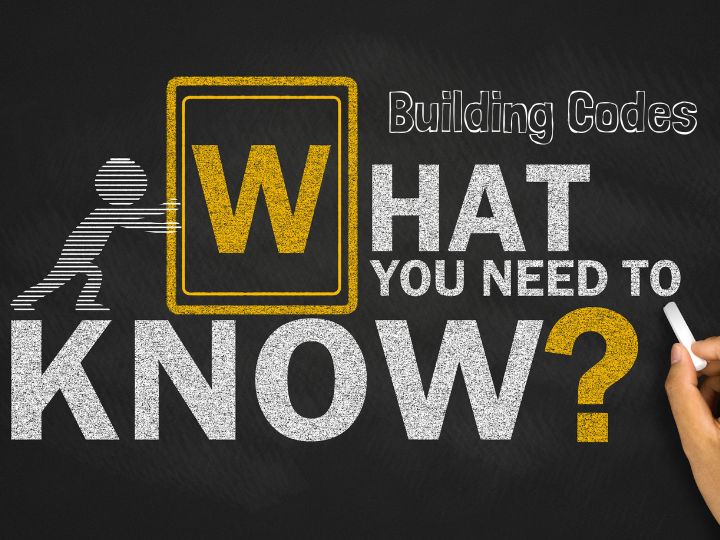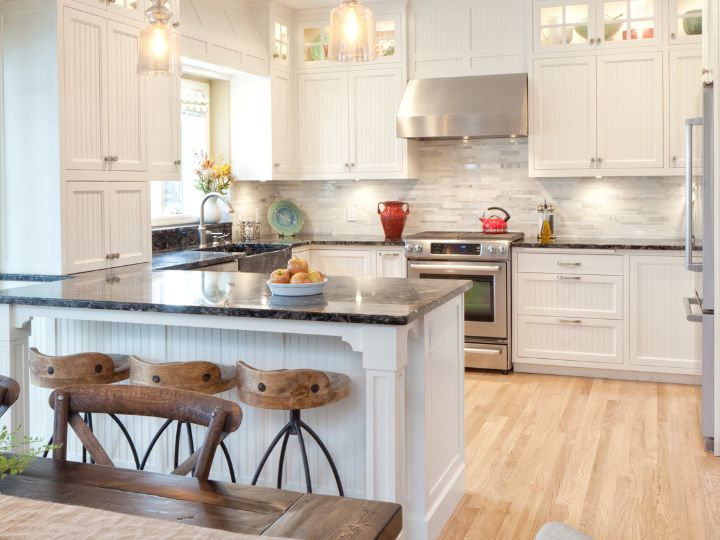
Building Codes in Grand Rapids: What Homeowners Need to Know

Whether you're planning a kitchen remodel, bathroom renovation, or basement finishing project, understanding Grand Rapids building codes is essential for a successful home improvement project. As homeowners in the Grand Rapids area embark on renovation projects, navigating the complex landscape of building codes, permits, and inspections can seem overwhelming. This comprehensive guide will help you understand what you need to know about building codes in Grand Rapids, Michigan.
Understanding Building Codes: The Foundation of Safe Construction
Building codes are regulations that establish minimum standards for construction, renovation, and maintenance of buildings. These codes exist to protect public health, safety, and welfare while ensuring structural integrity and fire safety. In Grand Rapids, adherence to building codes isn't just recommended—it's required by law for most home improvement projects.
The building code requirements affect virtually every aspect of construction, from the materials you can use to how electrical systems must be installed. Whether you're working with a professional contractor like Thornapple Construction or tackling some aspects of your project yourself, understanding these requirements upfront can save you time, money, and potential safety hazards.
Current Building Codes Enforced in Grand Rapids
Grand Rapids enforces a comprehensive set of building codes that cover all aspects of construction and renovation. Here are the specific codes currently in effect:
Building Code
- 2015 Michigan Building Code (MBC): The primary building code governing new construction and major renovations
Rehabilitation Code
- 2015 Michigan Rehabilitation Code for Existing Buildings (MRCEB): Specifically addresses renovations and improvements to existing structures
Mechanical Systems
- 2021 Michigan Mechanical Code (MMC): Covers heating, ventilation, air conditioning, and refrigeration systems
Plumbing Code
- 2021 Michigan Plumbing Code (MPC): Regulates all plumbing installations and repairs
Electrical Code
- 2023 National Electrical Code (NEC) with Michigan Part 8 Changes: Ensures electrical safety in all installations
Fire Safety
- 2018 International Fire Code (IFC): Addresses fire prevention and safety measures
Accessibility
- 2009 Accessibility and Usable Buildings and Facilities ICC A117.1-2009: Ensures compliance with accessibility requirements
Property Maintenance
- 2012 International Property Maintenance Code (IPMC): Establishes minimum maintenance standards for existing buildings
Energy Efficiency
- 2015 Michigan Energy Code (MEC): Promotes energy-efficient construction and renovation practices
When Do You Need a Building Permit?
If you are planning a remodel or repair to your single-family home or 2-family duplex, you will need to apply for a residential building permit. Understanding when permits are required can help you avoid costly delays and potential legal issues.
Projects That Typically Require Permits
Structural Changes:
- Home additions
- Wall removal or installation
- Foundation work
- Roof modifications
Electrical Work:
- New electrical panels
- Adding circuits
- Outlet installation in kitchens and bathrooms
- Ceiling fan installation
Plumbing Projects:
- Bathroom renovations involving plumbing changes
- Kitchen remodels with plumbing modifications
- Water heater installation
- New plumbing lines
HVAC Systems:
- Furnace replacement
- Central air conditioning installation
- Ductwork modifications
- Gas fireplace installation
- Converting unfinished basements to living spaces
- Adding bedrooms or bathrooms in basements
- Installing egress windows
Projects That May Not Require Permits
- Painting
- Flooring replacement (non-structural)
- Cabinet installation (without plumbing/electrical changes)
- Minor repairs and maintenance
When in doubt, it's always best to consult with the Grand Rapids Development Center or work with an experienced contractor who understands local permit requirements.
The Building Permit Application Process
Navigating the permit application process doesn't have to be complicated when you understand the steps involved. Here's what you need to know:
Step 1: Project Planning and Documentation
Before applying for permits, you'll need detailed plans showing:
- Scope of work
- Materials to be used
- Structural changes
- Electrical and plumbing modifications
- Compliance with zoning requirements
Step 2: Submit Your Application
Applications can be submitted to the Grand Rapids Development Center. You'll need to provide:
- Completed permit application
- Detailed construction plans
- Plot plan showing property boundaries
- Appropriate fees
Step 3: Plan Review
The city will review your plans to ensure compliance with all applicable codes. This process can take several days to weeks, depending on the complexity of your project.
Step 4: Permit Issuance
Once your plans are approved, you'll receive your building permit. Construction cannot begin until you have the permit in hand.
Step 5: Inspections
Throughout your project, various inspections will be required, such as:
- Foundation inspection
- Framing inspection
- Electrical rough-in inspection
- Plumbing rough-in inspection
- Insulation inspection
- Final inspection
Working with Licensed Contractors
Permits can be applied for by the homeowner if the work will be completed by the homeowner. If not, a licensed contractor / builder is required to obtain the permit and complete the work. While homeowners can pull permits for work they'll complete themselves, many choose to work with licensed contractors for several important reasons.
Benefits of Working with Professional Contractors
Code Knowledge: Experienced contractors like Thornapple Construction understand current building codes and can ensure your project meets all requirements from the start.
Permit Management: Professional contractors handle the entire permit process, from application to final inspection, saving you time and potential headaches.
Quality Assurance: Licensed contractors are accountable for their work and must meet professional standards.
Insurance Protection: Working with licensed, insured contractors protects you from liability issues.
Thornapple Construction's Approach to Code Compliance
Thornapple Construction, a trusted remodeling contractor in the Grand Rapids area, takes a comprehensive approach to building code compliance. Their process includes:
- Initial Consultation: Understanding your vision while ensuring code compliance from the project's inception
- Transparent Planning: Clear project planning that accounts for all permit requirements
- Professional Permitting: Handling all permit applications and inspections
- Quality Craftsmanship: Ensuring all work meets or exceeds building code requirements
- Final Approval: Managing the final inspection process for project completion
Special Considerations for Common Renovation Projects
Different types of renovation projects have unique code requirements that homeowners should understand:
Kitchen Remodeling Codes
Kitchen renovations often trigger multiple code requirements:
- Electrical: GFCI outlets required near water sources
- Ventilation: Proper exhaust ventilation requirements
- Structural: Load-bearing considerations for wall removal
- Plumbing: Proper venting and drainage requirements
Bathroom Renovation Codes
Bathroom projects must address:
- Electrical Safety: GFCI protection and proper electrical placement
- Ventilation: Exhaust fan requirements
- Waterproofing: Proper moisture barrier installation
- Accessibility: ADA compliance considerations
Basement Finishing Codes
Permits are required for most major basement renovations in Grand Rapids, including electrical, plumbing, and structural work. Basement projects require special attention to:
- Egress Requirements: Proper emergency exit windows
- Ceiling Height: Minimum ceiling height requirements
- Moisture Control: Proper waterproofing and ventilation
- Fire Safety: Smoke detector placement and fire separation
Energy Code Compliance
New and existing Residential construction shall comply with Chapter 5 of the MEC, chapter 13 of the MRC. Energy efficiency is increasingly important in building codes, affecting:
- Insulation Requirements: Proper R-values for walls, ceilings, and floors
- Window Specifications: Energy-efficient window requirements
- HVAC Efficiency: High-efficiency heating and cooling system standards
- Air Sealing: Proper building envelope sealing requirements
Common Code Violations and How to Avoid Them
Understanding common violations can help you avoid costly corrections:
Electrical Violations
- Missing GFCI protection in required areas
- Improper electrical panel installation
- Inadequate circuit capacity for new loads
Structural Violations
- Removing load-bearing walls without proper support
- Inadequate foundation support for additions
- Improper beam sizing and support
Plumbing Violations
- Incorrect pipe sizing
- Improper venting
- Cross-connections between potable and non-potable water
Fire Safety Violations
- Missing smoke detectors
- Improper egress window installation
- Inadequate fire separation between spaces
The Inspection Process: What to Expect
Building inspections are conducted at various stages of construction to ensure code compliance:
Scheduling Inspections
- Inspections must be scheduled in advance
- Work cannot proceed to the next phase until inspections are passed
- Failed inspections require corrections before re-inspection
Types of Inspections
- Foundation/Footings: Before concrete is poured
- Framing: After structural work is complete
- Rough-In: For electrical, plumbing, and mechanical systems
- Insulation: Before drywall installation
- Final: Upon project completion
Preparing for Inspections
- Ensure work areas are clean and accessible
- Have permits and plans available
- Be present or have your contractor present during inspections
Consequences of Non-Compliance
Failing to comply with building codes can result in serious consequences:
Safety Risks
- Structural failures
- Fire hazards
- Electrical dangers
- Health risks from improper ventilation
Legal and Financial Consequences
- Stop-work orders
- Fines and penalties
- Required demolition and reconstruction
- Insurance claim denials
- Difficulty selling your home
Property Value Impact
- Unpermitted work can decrease property value
- Potential buyers may require corrections
- Difficulty obtaining financing for buyers
Resources for Grand Rapids Homeowners
City of Grand Rapids Resources
- Development Center: For permit applications and questions
- Building Inspections Department: For inspection scheduling and code questions
- Code Compliance Department: For property maintenance issues
Professional Resources
- Licensed Contractors: Like Thornapple Construction for complete home remodeling projects
- Architects and Engineers: For complex structural projects
- Code Consultants: For specialized code interpretation
Planning Your Next Project
When planning your next home improvement project in Grand Rapids, consider these steps:
- Research Requirements: Understand what codes apply to your specific project
- Consult Professionals: Work with experienced contractors who understand local codes
- Budget for Compliance: Include permit fees and code-required upgrades in your budget
- Plan for Inspections: Build inspection schedules into your project timeline
- Document Everything: Keep records of permits, inspections, and approvals
Understanding building codes in Grand Rapids is essential for any homeowner planning renovation or construction projects. While the codes may seem complex, they exist to protect your safety, ensure quality construction, and maintain property values throughout the community.
Working with experienced contractors like Thornapple Construction can help ensure your project not only meets all building code requirements but also achieves your vision for your home. Their comprehensive approach to home remodeling includes managing all aspects of code compliance, from initial planning through final inspection.
Whether you're planning a small bathroom update or a complete home renovation, taking the time to understand building codes upfront will help ensure your project proceeds smoothly and results in a safe, beautiful, and valuable addition to your home.
Remember, building codes are not obstacles to overcome—they're guidelines that help ensure your home improvement projects are safe, durable, and valuable for years to come. When in doubt, consult with professionals who can guide you through the process and help bring your vision to life while maintaining full compliance with Grand Rapids building codes.

.svg)
.svg)


